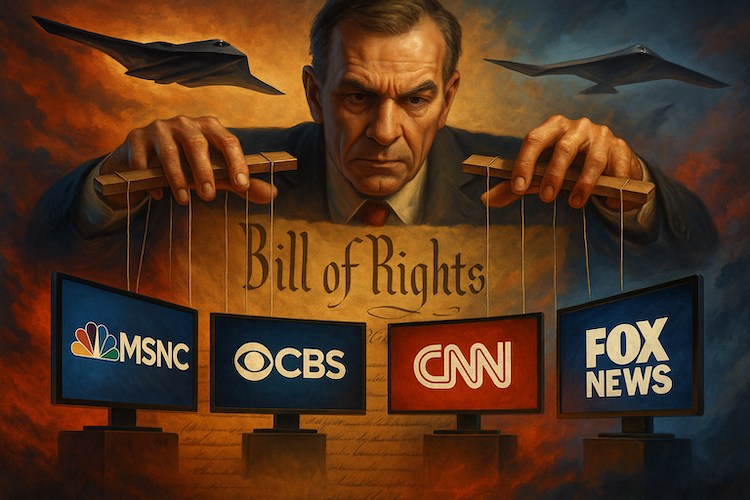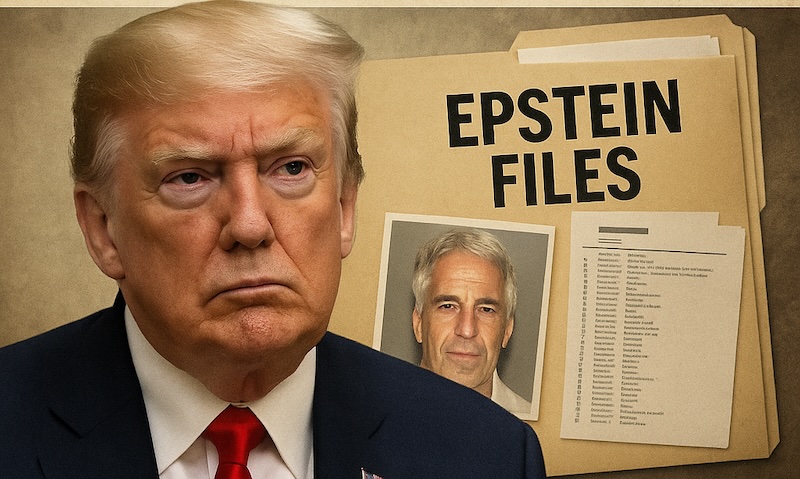In our increasingly polarized world, the way we receive and interpret news is becoming dangerously skewed. The recent B-2 bomber strike on Iran provides a vivid example of media bias and political double standards that require our urgent attention. Let’s step away from sensationalized headlines and examine this issue through reason, logic, and verifiable data.
The B-2 Bomber Strike: A Case Study
On President Trump’s orders, the United States recently carried out the largest B-2 stealth bomber operation in history, deploying 14 bunker-busting bombs, each weighing 30,000 pounds, targeting Iran’s nuclear facilities. Predictably, the media and political commentators erupted into fierce debate.
Liberal Media Reaction:
Liberal news outlets and commentators described the attack as reckless, unconstitutional, and indicative of Trump’s unilateral decision-making style. Headlines from CNN, MSNBC, and The New York Times emphasized the dangers of escalation, constitutional overreach, and international law violations.
Conservative Media Reaction:
Conversely, conservative outlets like Fox News and the Wall Street Journal justified the strike, citing national security threats and asserting presidential authority to act decisively.
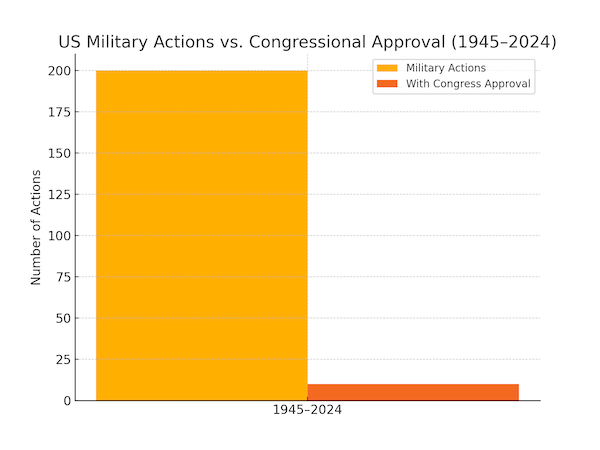
Historical Context and Media Double Standards
The controversy surrounding Trump’s decision highlights an unsettling double standard. Democratic presidents have routinely executed similar military operations without prior congressional approval, yet media reactions and public outrage were markedly subdued.
Here are concrete examples:
Libya (2011)
- President Obama authorized extensive airstrikes against Muammar Gaddafi without congressional consent.
- Media Reaction: Generally supportive, describing the intervention as a humanitarian necessity. According to Pew Research, only 20% of news coverage critically examined the constitutional implications.
Syria (2014-2017)
- Obama initiated and later Biden continued airstrikes against ISIS, significantly affecting Syrian sovereignty.
- Media Reaction: Predominantly supportive or neutral, framing actions as necessary counter-terrorism measures. Media Matters research indicates over 70% of mainstream coverage portrayed these strikes positively or neutrally.
Somalia and Yemen (Ongoing)
- Drone strikes increased significantly under Obama and continued under Biden, often without transparency.
- Media Reaction: Limited coverage with minimal scrutiny. The Bureau of Investigative Journalism reported over 500 drone strikes under Obama, receiving scant mainstream media criticism.
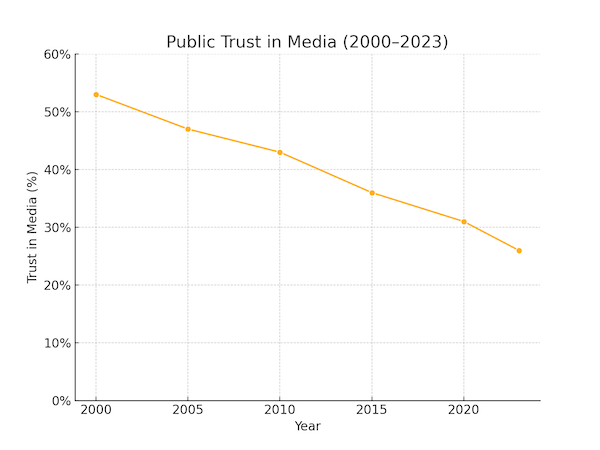
Quantifying Media Bias
According to a 2023 Pew Research Center study, 72% of Americans believe media outlets intentionally favor one political side. This perception isn’t unfounded. A Harvard study revealed a dramatic difference in the tone of coverage depending on the president’s political affiliation:
- Positive Coverage:
- Obama Administration (2009-2017): 56%
- Trump Administration (2017-2021): 18%
- Negative Coverage:
- Obama Administration: 23%
- Trump Administration: 80%
These disparities highlight a clear media bias impacting public perception and trust.
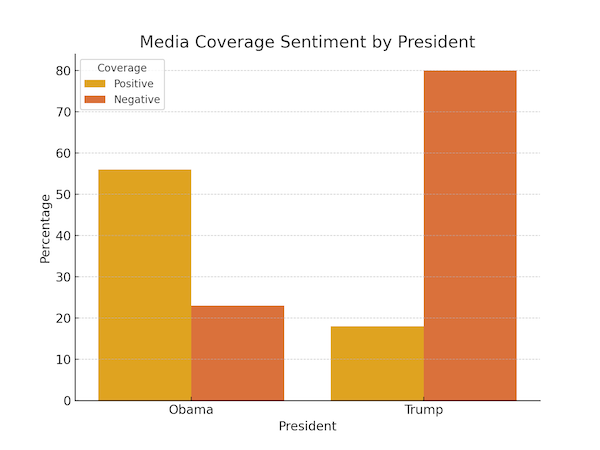
The Constitutional Debate
The U.S. Constitution explicitly assigns Congress the power to declare war (Article I, Section 8). However, since the Authorization for Use of Military Force (AUMF) post-9/11, presidents have increasingly taken military actions unilaterally, citing immediate national security threats. This practice, though controversial, has bipartisan precedent.
According to the Congressional Research Service:
- From 1945-2024, U.S. presidents have initiated over 200 military actions without formal war declarations.
- Of these, fewer than 10 involved prior explicit congressional approval.
A Balanced Approach: Upholding Consistency
From a centrist perspective, the primary concern isn’t necessarily the military action itself but ensuring consistent application of constitutional standards. Selective outrage based on partisan politics only diminishes public trust in media and democratic institutions. Objectivity and accountability should not depend on political affiliation.
Recommendations for Consumers of News
- Cross-Reference Sources: Consult multiple news outlets with varying viewpoints.
- Check Fact-Based Platforms: Websites like FactCheck.org and PolitiFact.com can help verify claims and counter misinformation.
- Engage Critical Thinking: Question why a news story is presented in a particular way, identifying potential biases.
Conclusion: A Call for Integrity and Fairness
The media’s role as a watchdog is invaluable, but this requires an unwavering commitment to fairness and factual integrity. By recognizing and addressing inherent biases, we can foster more informed public discourse, protect democratic values, and rebuild trust in our institutions.
We must collectively step back, engage our critical faculties, and demand impartiality from those who inform us.
